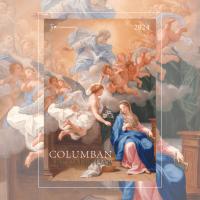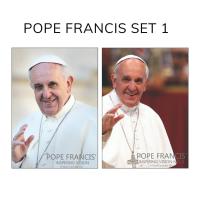Columban Fr Warren Kinne reflects on the seventh chapter of the Encyclical Letter, Fratelli Tutti of the Holy Father Francis, on fraternity and social friendship.

The recent exit of the United States and its allies, like Australia, from Afghanistan, has for me, put a spotlight on the art of spin in the political process. It isn’t easy to unravel the real motivations behind this war (and that in Iraq) and why we stayed around so long and how we could be so wrong about the fragility of the State in Afghanistan that we had helped create. The exit strategy was messy, to say the least, and the rapid collapse of the Afghan state was unexpected even to the US President. Yet politicians in the West tend to give a positive spin to whatever happens. Such is the way of politics.
At some point, if the world is to be a better place in which to live, we will need the truth behind what happened at the Twin Towers in New York and the subsequent reaction from the US and its allies. But not only do we need the truth about the events and their unfolding, but also reconciliation between the various agents and their own part in the wars and the insurgency.
In fact, the same task - of truth and reconciliation - is still outstanding for us in Australia regarding the first nations peoples and what happened to them, and why we are where we are. How possible is a “makarrata” at this point in our story; and also the how of a Constitutional change that would recognize what was ignored in the past. Ultimately what would the just outcome of such a process look like?
In all situations the truth needs to be uncovered, the spin taken away, and a more realistic view of what has happened over the years achieved – all this as a prelude to any chance at a meaningful reconciliation.
In these sorts of situations, Pope Francis reminds us that the people have the right to know what happened (260). Truth, in fact, is an inseparable companion of justice and mercy. This truth should not lead to revenge, but rather to reconciliation and forgiveness (227). Negotiation becomes necessary for shaping concrete paths to this peace (231).
In human affairs, there will inevitably be conflict. As Christians, we know that forgiveness and reconciliation are themes central to resolving this (237). True love for an oppressor means seeking ways to make him cease his oppression (241) and indeed even to recognise it. Forgiveness does not stop us from demanding justice and ensuring that harm doesn’t continue to be done to the injured.
The important thing is not to fuel anger (242) in this process of reconciliation. There will be different points of view. In the end, we shouldn’t opt for a kind of syncretism or for the absorption of one point of view into the other, but rather for a resolution that takes place on a higher plane and preserves what is valid and useful on both sides (245). We need a story that makes sense of the history of First Nations Peoples in this land and that of the efforts of the settlers and convicts who also had their part in what has become Australia, for better or for worse.
This is what Francis calls the process of a culture of encounter. In this same chapter, Pope Francis takes up the issue of memory. I once heard, in regard to the North Ireland conflict that the British need to remember and the Irish need to forget. But perhaps all need to remember in a helpful way. The encyclical takes the examples of The Shoah (247) or Jewish Holocaust and the dropping of atomic bombs on Japan (248) during the Second World War as events that should “keep alive the flame of collective conscience” (249).
We are not to forget the events although we do need to forgive and to move on. Those who truly forgive do not forget. Instead, they choose not to yield to the same destructive force that caused them so much suffering (251). Horrid mistakes and atrocities have happened here in our country and the past cannot be reconstructed. But together we can create a new story that will admit the harm done and that will elevate the suffering of all to a new plane.
In this chapter, the Pope also raised the questions of War and the death penalty. This reminds me of our frontier wars, not much spoken about in my experience, and the death of aboriginal people in custody. There can indeed be the crime of punishment especially when the root causes of situations have not been uncovered or understood.
Columban Fr Warren Kinne lives and works on the Gold Coast.
Related links
- Read more from the current Columban eBulletin



Sara Cotterall:
Oct 16, 2021 at 06:43 PM
Thank you for this bold, honest and searing commentary on the status of the First Peoples of Australia, inter alia.
I would be the first to sign up to a Truth and Reconciliation Commission to "unpack" and move on from the clergy sexual abuse of the past decades.